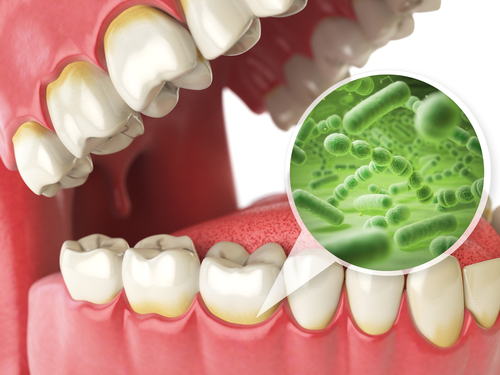Resource Library
Start Reading

What is oral medicine? Oral medicine is a dental specialty that focuses on the diagnosis and treatment of mouth diseases, facial pain, and temporomandibular joint disorders (TMDs). An oral medicine specialist combines dentistry and medicine to treat mouth diseases and may also advise a general dentist in the treatment of medically complex patients.
At your annual appointment, your dentist will conduct a complete evaluation of your mouth each time you get your teeth cleaned. This evaluation may include X-rays, as well as an examination of your teeth and oral mucosa. If your dentist finds lesions or other abnormalities, or if you have been experiencing facial pains with no known injury, you may be referred to an oral medicine specialist.
For many patients, conditions are managed medically through the use of topical and systemic medications. Penn Dental Family Practice offers expertise in the diagnosis and management of a variety of conditions, including:
 Yeast (candida albicans) is present in most individuals as a normal part of their mouth’s microbial environment. When the yeast overgrows, however, it can become visually apparent and produce unpleasant symptoms. Infection occurs when the oral environment is altered in such a way that yeast growth increases. Patients may have pain or a burning sensation in the mouth, while others do not experience any symptoms at all.
Yeast (candida albicans) is present in most individuals as a normal part of their mouth’s microbial environment. When the yeast overgrows, however, it can become visually apparent and produce unpleasant symptoms. Infection occurs when the oral environment is altered in such a way that yeast growth increases. Patients may have pain or a burning sensation in the mouth, while others do not experience any symptoms at all.
Your dentist will evaluate you to determine the underlying causes of the infection. People at higher risk for yeast infection include:
A tailored treatment plan will be created for you to manage the infection. In many cases, improving oral health care practices may be sufficient. Antifungal medications in the form of topical rinses, lozenges, or pills may also be prescribed to stop the yeast from growing.
There are three salivary gland systems that are responsible for making and releasing saliva into the mouth. A salivary gland disorder may occur when something interferes with these processes. One possible cause is obstruction. Gland stones can form in the salivary ducts, often due to medications that lower saliva production, dehydration, or decreased food intake. These tiny, calcium-rich stones can inhibit the normal salivary process, which in some cases may lead to infection. Treatment involves methods to help the stone pass or remove it surgically. Antibiotics may be used for stones that have become infected.
Another cause of a salivary gland disorder is a tumor. Most tumors are benign, with the most common type appearing just below the earlobe. Even in the case of benign tumors, continued growth can be deforming, which is why many patients opt to have them removed surgically.
Cold sores are from a virus transmitted via person-to-person contact. This is one of the most common conditions treated by oral medicine specialists. Because cold sores are contagious, they can spread quickly even before symptoms appear. There are a variety of cold sores, including the herpes simplex virus (HSV-1). Cold sores usually pass through several stages:
Sores often clear up without treatment, but antiviral medications can help the sores heal more quickly and reduce their reoccurrence. People experiencing cold sores for the first time may experience a fever, sore throat, headache, muscle aches, and swollen lymph nodes. An oral medicine specialist is qualified to diagnose the cause of your symptoms and develop a treatment plan to reduce their severity and duration.
Do you still have questions about what oral medicine is and how this specialty can meet your oral health needs? Our specialists at Penn Dental Family Practice have advanced training and years of clinical experience in treating a variety of oral conditions. Whether you’re experiencing pain in the mouth or believe you have one of the above problems, it’s time to see a specialist that understands both dentistry and medicine. To learn more or to make an appointment, please call 215-898-7337 today.